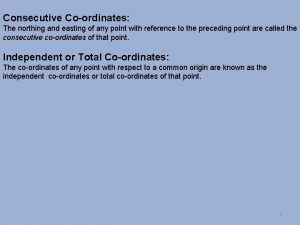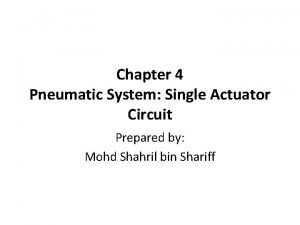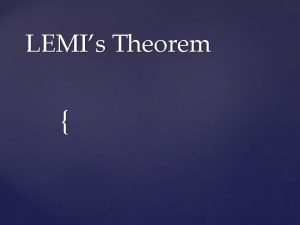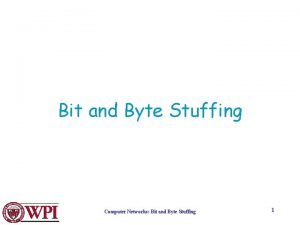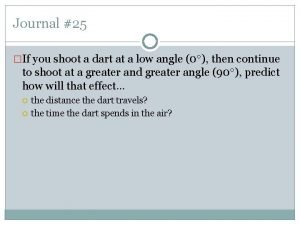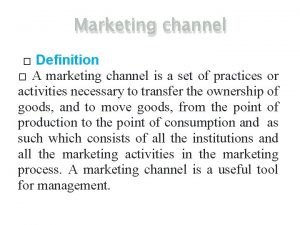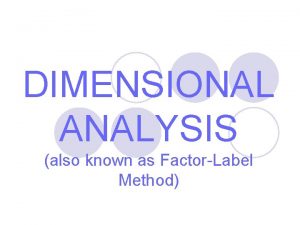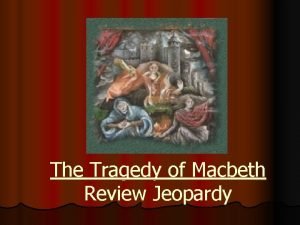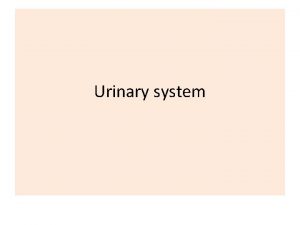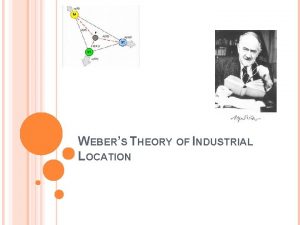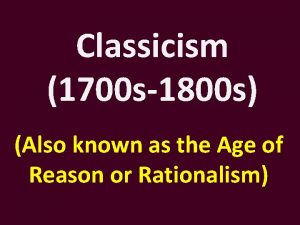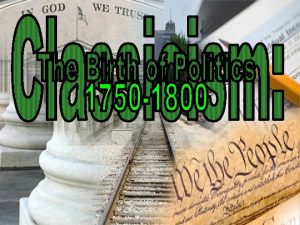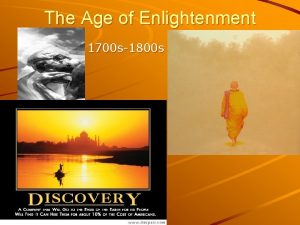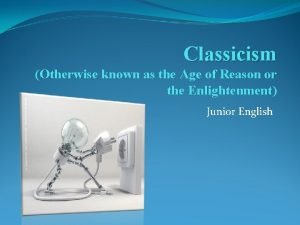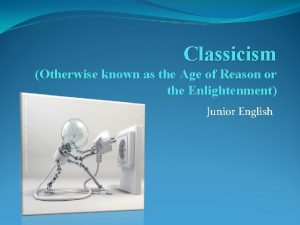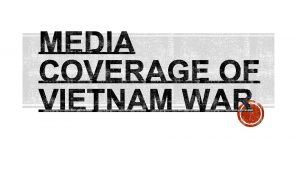Classicism 1700 s1800 s Also known as the










- Slides: 10

Classicism (1700 s-1800 s) (Also known as the __________ or ________)

Definition • Adherence to traditional standards such a simplicity, restraint, moderation, and personal freedom that are universally and enduringly valid • Emphasis on logical, rational thought.

I. ENLIGHTENMENT The belief that we, as humans, can arrive at the truth by using our _______ rather than relying on the authority of the past, religious faith or on intuition. _____ takes precedence over authority.

II. DEISM - the belief that God’s will does not control the universe; God gave man reason in order to ___________________. Deists believe that God created the universe, then disassociated himself from his creation. God acts as an “_______. ”

• “Members of the United Deist Community hold the belief that God is discovered through Reason – but the task of discovery is never over. We each pursue a lifelong intellectual odyssey” Excerpt from the United Deist Community web site. • “My _____ is my church. ” - ________

Deists believe that: 1. God is not accessed through organized ______ or a set of beliefs 2. God has not selected a __________ (e. g. Jews or Christians) to be the recipients of any special revelation or gifts. 3. They believe that ______ do not happen; the "world operates by natural and self-sustaining laws of the creator. " 4. Deists pray, but only to express their appreciation to God for his works. They generally do not ask for special privileges.

III. CLASSICISM/RATIONALISM based on Enlightenment & Deism BELIEFS: 1. Faith in natural _________ – man is basically good, born without sin; the concept of tabula rasa or blank slate. 2. Perfectibility of a human being – every individual can achieve ________ through reason (and it is possible to improve situations of birth, economy, society, and religion) 3. The sovereignty of reason - Rene Descartes’ “I think, therefore, I am. ” God gave people the ability to think in a logical, ordered manner. _______ takes precedence over authority. 4. Universal benevolence - the attitude of helping everyone; everyone can achieve happiness through __________. 5. Clarity, order and balance are ideal qualities – the universe created by God is ____________.

IV. CLASSICIST LITERATURE 1. Rooted in _____ and ______, and not God and the imagination. 2. A searching inquiry in all aspects of the world around. • _____, ______ and experiments • _____ and _____ inquiry 3. Constant search of the _______ - emphasis on individualism in • Personal religion • Study of the Bible for personal interpretation

Common forms of Classicist Literature: • Pamphlets • ______ • Newspaper Articles • Journals • Almanacs • Letters • Essays

What are the major differences between Puritanism and Classicism?
 Consecutive and independent coordinates
Consecutive and independent coordinates Exhaust air throttling
Exhaust air throttling Lami's theorem definition
Lami's theorem definition Hdlc bit stuffing
Hdlc bit stuffing The path that a projectile follows
The path that a projectile follows Definition of marketing channels
Definition of marketing channels 10912 ra
10912 ra Factor label method steps
Factor label method steps The “tragedy of macbeth” is also known as _____.
The “tragedy of macbeth” is also known as _____. Proximal convoluted tubule histology
Proximal convoluted tubule histology Weber location model
Weber location model
